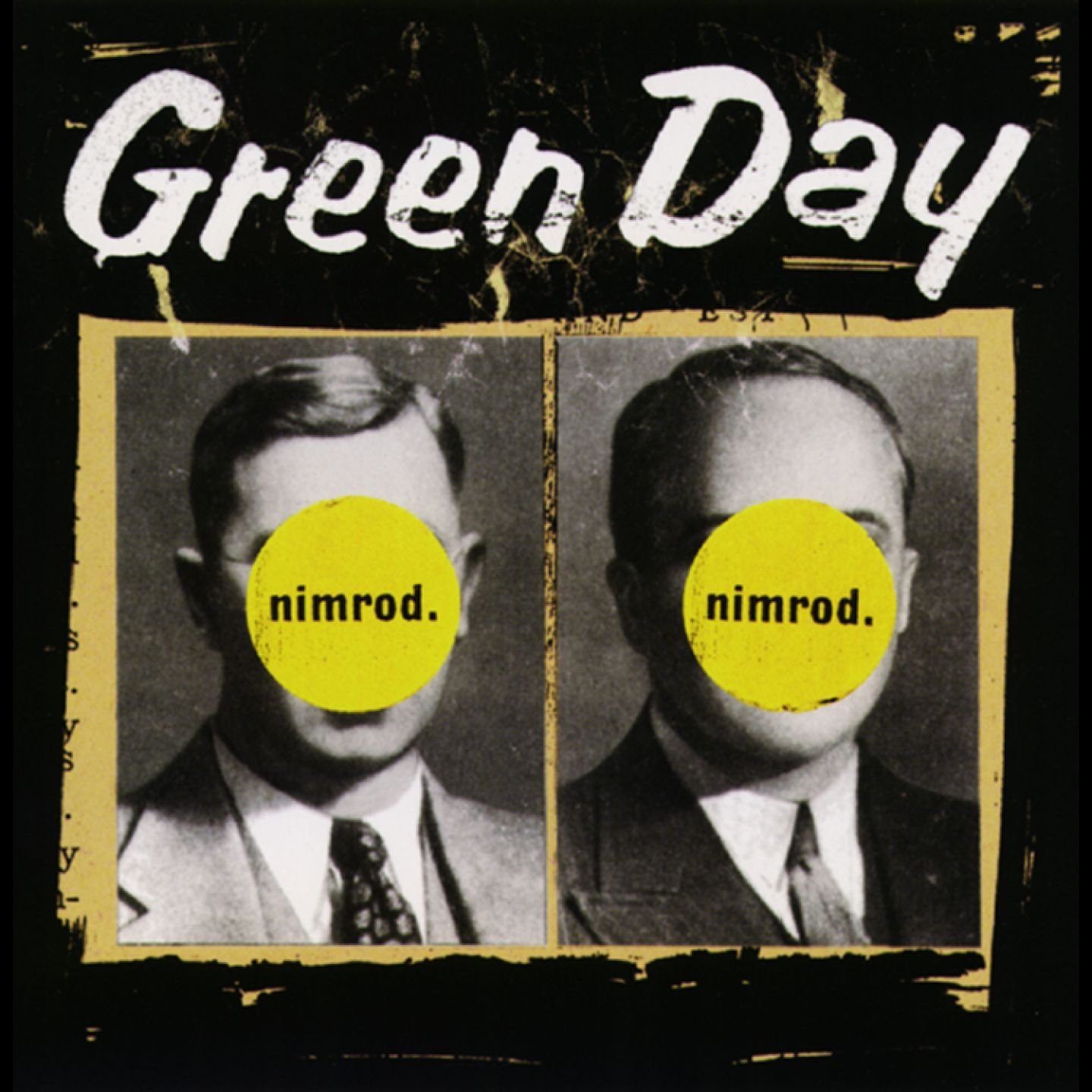Green Day’s ‘Nimrod’ originally came out October 14, 1997. In honor of the album turning 20 this year, and our feature on the Best Alternative Rock Songs of 1997 that includes Green Day’s “Hitchin’ A Ride” and “Good Riddance (Time of Your Life),” we’ve republished it here.
Teenage angst has paid off well; now they’re bored and old. On the brink of becoming has-beens at the ripe old age of 25, Green Day hint at “high-concept” with their third major-label album. Anyone who ever griped that Green Day weren’t, you know, really punk will find confirmation here. At heart, Nimrod is a poker-faced rendition of what every band before them has done in this situation—genre-hopping, “testing their boundaries” in the studio, strings, horns, the works.
In that sense, then, Nimrod‘s unexpectedness is completely to be expected. Despite a few punk gestures—a verbal shoutout to Bikini Kill, a sonic ode to the Ramones, blurts of cuddly quasi-hardcore—Green Day now write genial mid-tempo songs about growing up. At times, frontman Billie Joe Armstrong even seems to be impersonating Mark Eitzel impersonating Frank Sinatra. This isn’t necessarily a bad thing—it would be nice if sucker Ph.D.’s like the Offspring’s Dexter Holland acted their age once in a while—but it’s definitely pushing it to record eight or nine songs that tell essentially the same story: Wanker grows up, thinks adulthood sucks, decides to stick it out. (Conveniently enough, one such track is titled “Redundant.”) “I was a young boy that had big plans / Now I’m just another shitty old man,” Armstrong sings on “The Grouch.”
At 18 tracks and nearly 50 minutes, Nimrod unintentionally wears you down. But in the same way that Dookie’s “Longview” awakened the eternal teen within, Nimrod struggles honestly with what slapped the reheated Sex Pistols in the face this past year: No one wants to watch punks grow up—least of all themselves. So when Armstrong muses over photos from a failed relationship, realizes he should admit he’s wrong more often, or tosses in a friendly oompah number about the pleasures of drag, more power to him. Next to the earnestness-as-marketing strategy peddled by everyone from Jakob Dylan to Puffy Combs, his willingness to makes real messes in public is positively inspiring.
But will it play on Gilman Street? “Walk on Eggshells on my old stomping ground / Yet there’s really no one left that’s hanging around,” Armstrong muses in “Walking Alone.” Less a comeback than a move to a new neighborhood, this surprisingly grown-up album may end up only appealing to the type of “shitty” old men who made it.





